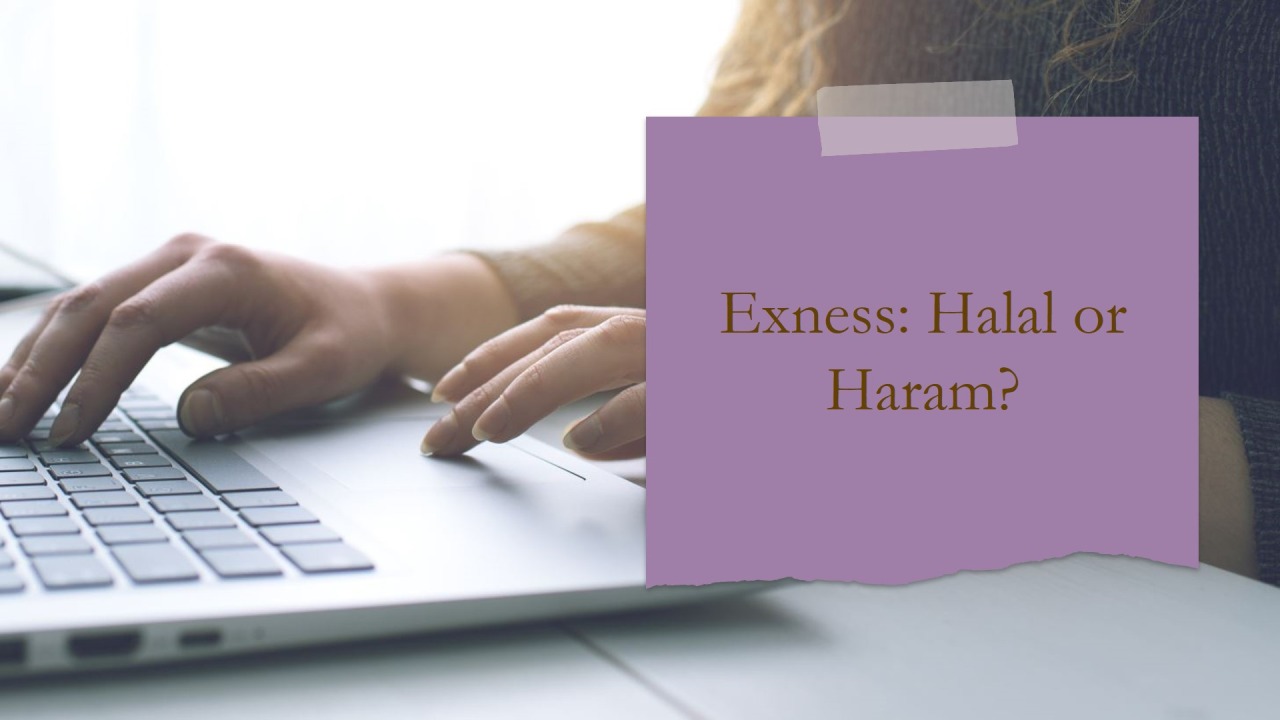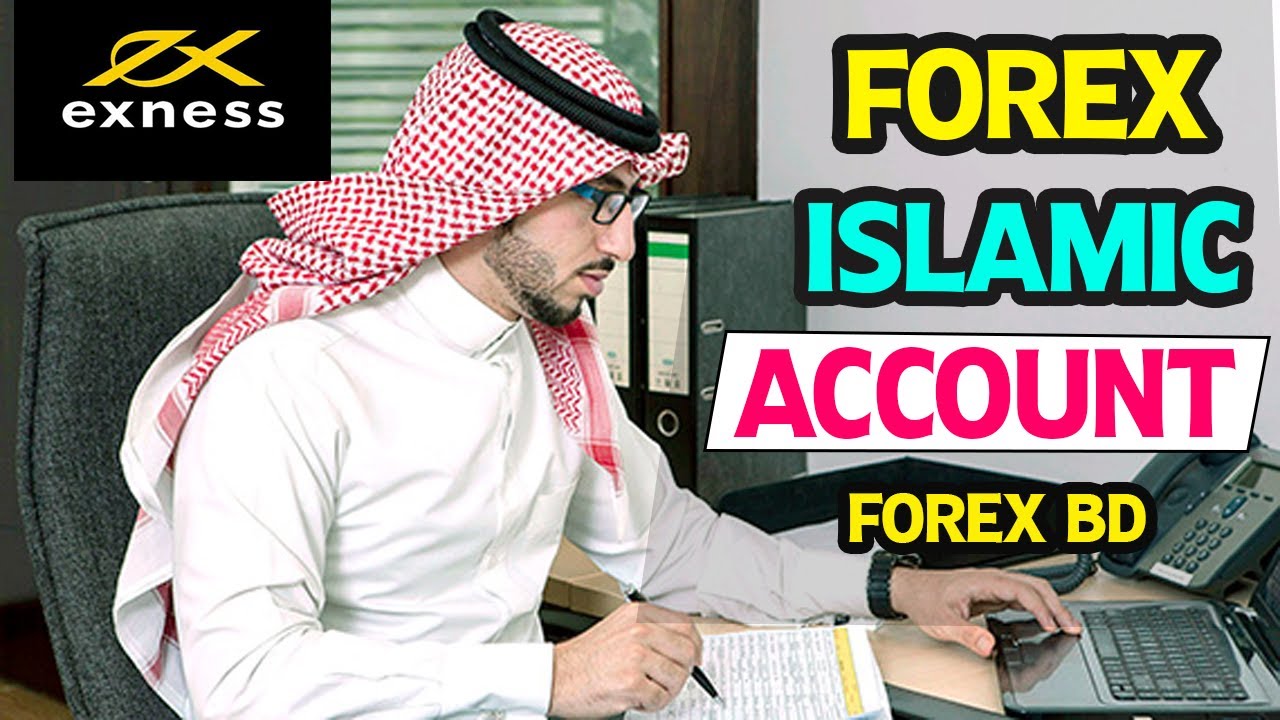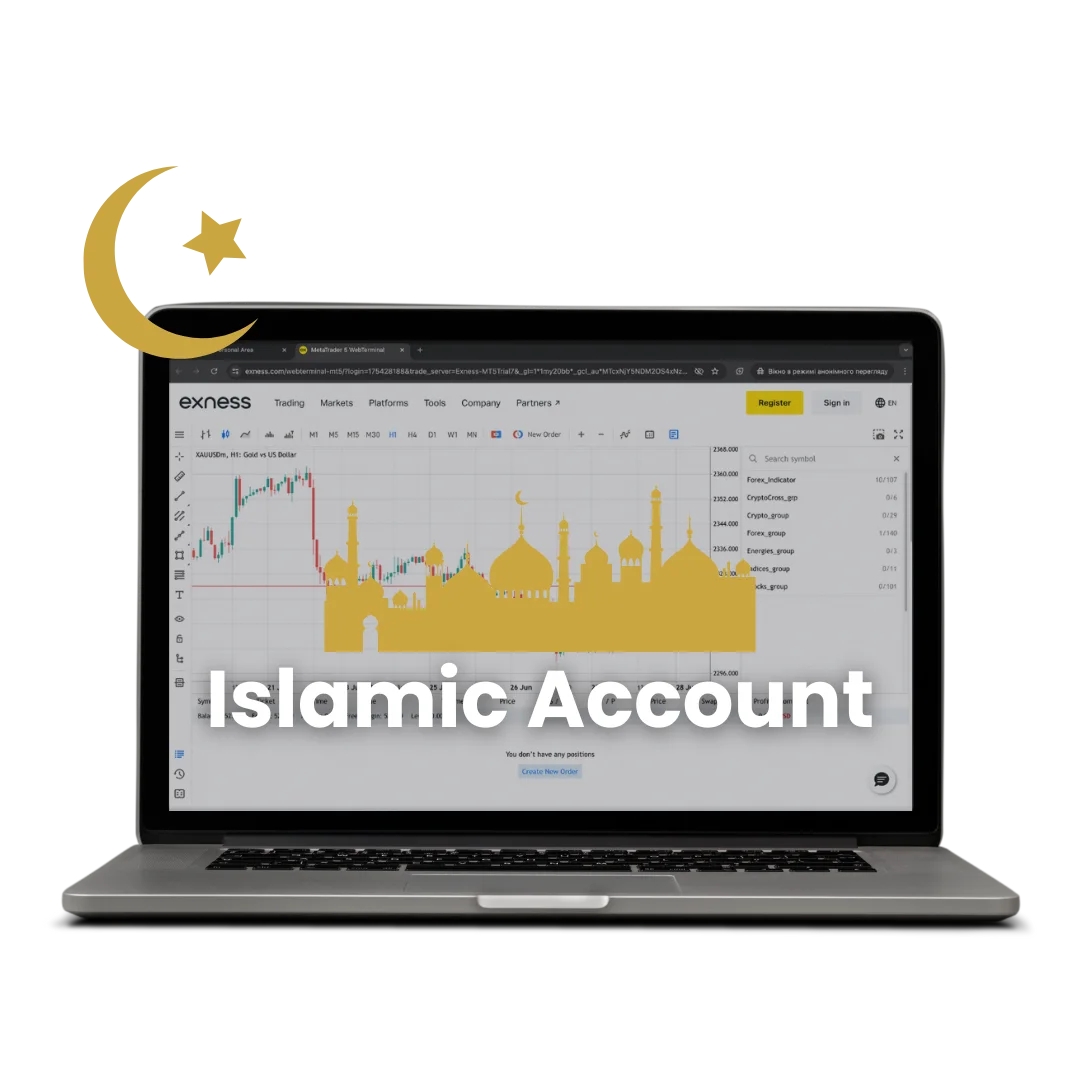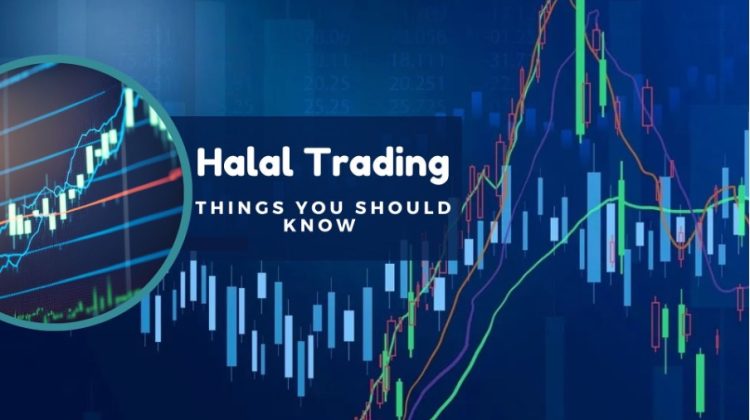
12 minute read
Is Exness Halal or Haram?
The question of whether Exness is halal or haram for Muslim traders is important for those seeking to engage in Islamic finance while adhering to Sharia law. In general, Exness offers Islamic accounts that are specifically designed to comply with Sharia principles, meaning they do not involve interest (riba) or any prohibited practices such as trading in haram commodities. These Islamic accounts are free from swap fees, which are usually charged for overnight positions, ensuring that traders can engage in forex trading without violating religious guidelines. This introduction will explore how Exness accommodates Muslim traders and offers a halal trading environment for those who wish to follow Islamic finance principles.


Understanding Halal and Haram in Trading
In Islamic finance, the concepts of halal (permissible) and haram (forbidden) are fundamental when determining whether a financial activity aligns with Sharia law. For Muslim traders, it is essential to understand these concepts to ensure that their trading activities do not violate Islamic principles. The distinction between halal and haram in trading primarily revolves around three key factors: Riba (interest), Gharar (uncertainty), and Maysir (gambling).
Halal Trading
Halal trading refers to financial activities that adhere to Islamic principles, which include:
Avoidance of Riba (interest): Riba refers to any form of interest or usury. Islamic law prohibits earning or paying interest on financial transactions, including loans or investments, as it is seen as exploitative and unjust.
Fairness and Transparency: Halal trading involves transparency, fairness, and ethical behavior. Traders must ensure that they are not involved in any deceptive practices or deals that could lead to unfair advantage.
Ethical Investments: Halal trading means investing in businesses or assets that comply with Islamic principles. This includes avoiding investments in industries such as alcohol, gambling, pork, and other sectors prohibited under Islamic law.
No Speculation (Maysir): Trading that involves excessive speculation, or Maysir, is considered haram. Speculative trading is similar to gambling, where the outcome is uncertain, and it often involves high risk for no productive purpose.
Haram Trading
Haram trading, on the other hand, refers to financial activities that violate Islamic principles. Common haram practices in trading include:
Riba: Earning or paying interest on trades, loans, or investments is prohibited in Islam. For example, if a trader is involved in trades that accumulate swap fees or interest charges overnight, these transactions are considered haram.
Gharar (Excessive Uncertainty): Gharar refers to transactions that involve excessive uncertainty or ambiguity. This can occur in situations where the terms of the trade or investment are unclear or where the risk of loss is disproportionate to the potential gain.
Maysir (Gambling): Any form of trading or financial speculation that resembles gambling is deemed haram. This includes trading based purely on chance without real analysis or productive activity, leading to uncertainty and unethical risk-taking.

Exness’s Commitment to Islamic Trading Principles
Exness understands the importance of adhering to Islamic principles for Muslim traders. The platform is dedicated to ensuring that its trading services align with Sharia law and offers options designed specifically for Muslim clients. Exness strives to provide an ethical and transparent trading environment, where traders can feel confident that their financial activities are in compliance with Islamic teachings. This commitment is reflected in the provision of Islamic accounts, which are tailored to meet the unique needs of Muslim traders who wish to avoid haram elements like Riba (interest) and Maysir (gambling).
Islamic Accounts (Swap-Free Accounts)
Swap-Free Trading: One of the main features Exness offers to comply with Islamic principles is the swap-free account. In traditional trading accounts, traders may incur overnight swap fees or interest charges for holding positions open after the trading day closes. This is prohibited in Islamic finance, as it involves earning or paying interest (Riba). Exness’s Islamic accounts eliminate these fees, making them swap-free and compliant with Sharia law.
No Riba: With Exness’s Islamic accounts, traders do not incur interest-based charges, ensuring that their trades remain halal. By removing swaps, Exness ensures that Muslim traders can engage in trading without violating Islamic prohibitions on interest.
No Speculation or Gambling (Maysir)
Ethical Trading Practices: Exness encourages traders to adopt ethical trading practices, avoiding speculation that resembles gambling (Maysir). The platform promotes transparency, providing real-time market data, educational resources, and tools that help traders make informed decisions rather than relying on high-risk speculation. Exness goal is to provide a safe environment for traders to engage in productive trading based on analysis and informed judgment, rather than relying on chance or unreasonably high risks.
Compliance with Islamic Financial Ethics
Sharia-Compliant Investments: Exness ensures that Muslim traders can access financial products and assets that are Sharia-compliant. This means that the platform does not offer products or services that involve prohibited activities, such as trading in alcohol, gambling, pork, or other industries deemed haram. Traders using Exness’s Islamic accounts can be confident that their investments are aligned with Islamic ethics and values.
No Excessive Uncertainty (Gharar): Exness ensures that all financial instruments and trading practices on the platform are clear, transparent, and free from excessive uncertainty or ambiguity (Gharar). This commitment helps maintain fairness in all transactions and ensures that traders are not exposed to unfair or unethical risks.
Education and Resources for Islamic Traders
Guidance on Halal Trading: Exness offers educational resources and guidance to help Muslim traders better understand how to trade in a manner that complies with Islamic principles. These resources cover key topics like Sharia-compliant trading, the role of Islamic accounts, and how to avoid haram practices such as interest-bearing transactions or excessive speculation.

How Exness’s Islamic Account Works
Exness’s Islamic accounts are designed specifically to meet the needs of Muslim traders by ensuring compliance with Sharia law. The key feature of these accounts is that they are swap-free, meaning that no interest-based swap fees are applied on positions held overnight. This aligns with the Islamic prohibition on Riba (interest), allowing traders to engage in forex and other financial markets without violating Islamic principles. In addition to being swap-free, Exness’s Islamic accounts offer traders the ability to access various assets, such as forex, commodities, and cryptocurrencies, with the same tools and features available in standard accounts, making them a versatile option for Muslim traders.
Furthermore, Exness’s Islamic accounts ensure that speculative trading (Maysir) is avoided by encouraging ethical trading practices. The platform promotes clear and transparent trading conditions, ensuring that transactions are well-defined and free from excessive uncertainty (Gharar). With these accounts, traders can use leverage responsibly and manage their risk in a way that aligns with Islamic financial principles. By offering multiple account types with swap-free options, Exness allows Muslim traders to choose an account that best suits their trading style, all while maintaining full compliance with Sharia law.

Start Trading: Open Exness Account or Visit Website
Is Exness Halal?
Exness strives to cater to the needs of Muslim traders by offering Islamic accounts that align with Sharia law, making it possible for Muslim traders to engage in forex trading without violating Islamic principles. The key feature of these Islamic accounts is that they are swap-free, meaning no interest-based swap fees are applied on overnight positions. This eliminates the issue of Riba (interest), which is prohibited in Islam. Therefore, Exness ensures that trading on its platform is halal for Muslim traders by offering a Riba-free environment, where no interest or usurious charges are incurred on trades held overnight.
In addition to swap-free accounts, Exness also adheres to Islamic finance principles by avoiding excessive speculation (Maysir) and uncertainty (Gharar) in trading practices. The platform encourages ethical trading and ensures that its offerings remain transparent, with clear and fair terms for all transactions. Exness does not allow trading in haram industries, such as alcohol, gambling, or pork-related products, ensuring that traders are only engaging in ethical, Sharia-compliant activities. By offering Islamic accounts and ensuring compliance with Sharia law, Exness provides Muslim traders with the tools to trade in a halal manner, helping them align their trading activities with Islamic financial principles.
Start Trading: Open Exness Account or Visit Website

Key Considerations for Muslim Traders
When trading with Exness, Muslim traders should consider several important factors to ensure that their trading activities remain in compliance with Sharia law. Although Exness offers Islamic accounts designed to eliminate interest-based transactions and provide a halal trading environment, there are additional elements that traders should keep in mind.
1. Avoiding Interest (Riba)
One of the primary concerns for Muslim traders is avoiding Riba, or interest, which is prohibited in Islam. Exness’s Islamic accounts are designed to be swap-free, meaning that no interest is charged for positions held overnight. However, traders should remain vigilant to ensure they are not inadvertently involved in other forms of interest-bearing transactions, even if they do not apply to swap-free accounts.
2. Ethical and Halal Investments
Muslim traders should ensure that they are investing in halal industries and instruments. Islamic finance prohibits investments in industries such as alcohol, gambling, pork-related products, and other haram sectors. Exness offers a platform that focuses on ethical trading and does not provide access to investments that would be considered haram. However, traders should review the instruments they trade to ensure they align with Sharia principles.
3. Speculation (Maysir) and Gambling
Trading should be based on informed decisions and analysis, not on excessive speculation, which is known as Maysir and is considered haram. Muslim traders should avoid high-risk speculative strategies that resemble gambling. For example, using excessive leverage or engaging in highly speculative short-term trading may resemble gambling and could violate Islamic principles. Traders are encouraged to engage in responsible and ethical trading based on proper analysis and understanding of the market.
4. Excessive Uncertainty (Gharar)
Gharar, or excessive uncertainty, is also prohibited in Islamic finance. In trading, this could refer to situations where the terms of a transaction are unclear or ambiguous, leading to unjust risk. Exness’s platform ensures that all transactions are transparent and that traders are well-informed about the terms of their trades. Traders should still be cautious of entering contracts where terms or risks are not fully understood, and strive to make informed decisions based on clear, available data.
5. Leverage and Risk Management
While leverage is available on Exness’s Islamic accounts, Muslim traders should be mindful of how they use it. Excessive leverage can lead to high-risk exposure, which might not align with Islamic values of financial prudence. It is important for traders to use leverage cautiously and only when necessary, ensuring that their trading decisions align with the principles of moderation and risk management.
6. Transparency and Ethical Trading
Transparency in trading is essential for Muslim traders. Exness provides full transparency in its fee structures and ensures that all trading practices are ethical and fair. Muslim traders should ensure that they fully understand the conditions of each trade, the fees involved, and any other factors that might affect their positions. Ethical trading is a cornerstone of Sharia-compliant finance, and Exness supports this by providing a platform that promotes fairness and integrity.
Conclusion
Exness offers Islamic accounts that allow Muslim traders to engage in halal trading by adhering to the principles of Sharia law. These accounts are swap-free, ensuring that no interest is charged or earned on overnight positions, thus eliminating the concern of Riba (interest). Additionally, Exness promotes ethical trading practices by avoiding speculative behaviors (Maysir) and ensuring that all transactions are transparent, in line with the prohibition of Gharar (excessive uncertainty). With its commitment to ethical and Sharia-compliant trading, Exness provides Muslim traders with the opportunity to trade in a manner that aligns with Islamic financial principles.
By offering Islamic accounts and supporting ethical investments, Exness ensures that Muslim traders can participate in the global financial markets without compromising their faith. However, it is important for traders to remain mindful of their risk management practices and avoid engaging in excessive speculation or high-risk activities. Overall, Exness provides a reliable and halal trading environment for Muslim traders who seek to trade in compliance with Sharia law.
FAQ
Is Exness Halal or Haram?
Exness offers Islamic accounts that are swap-free, ensuring they comply with Sharia law by avoiding Riba (interest). This makes Exness a halal option for Muslim traders who wish to trade ethically.
What is an Islamic account on Exness?
An Islamic account on Exness is a swap-free account that eliminates interest-based fees (Riba) for overnight positions, ensuring compliance with Islamic finance principles. These accounts are designed for Muslim traders to engage in halal trading.
Does Exness charge interest on Islamic accounts?
No, Exness does not charge interest or swap fees on Islamic accounts, making them fully compliant with Sharia law. This allows Muslim traders to trade without engaging in Riba (interest).
Are all Exness accounts halal?
Not all Exness accounts are halal. The Islamic accounts offered by Exness are specifically designed to comply with Islamic finance principles. Other account types may involve swap fees or interest charges, which are not permissible under Sharia law.
What types of trades are allowed on Exness Islamic account?
Trades on Exness Islamic account are similar to those on standard accounts, with the key difference being the absence of swap fees. Traders can trade forex, commodities, cryptocurrencies, and more, while ensuring the trades are Sharia-compliant.
Can I use leverage on an Exness Islamic account?
Yes, leverage is available on Islamic accounts with Exness. However, Muslim traders are advised to use leverage responsibly, ensuring that it aligns with Islamic principles of moderation and risk management.










